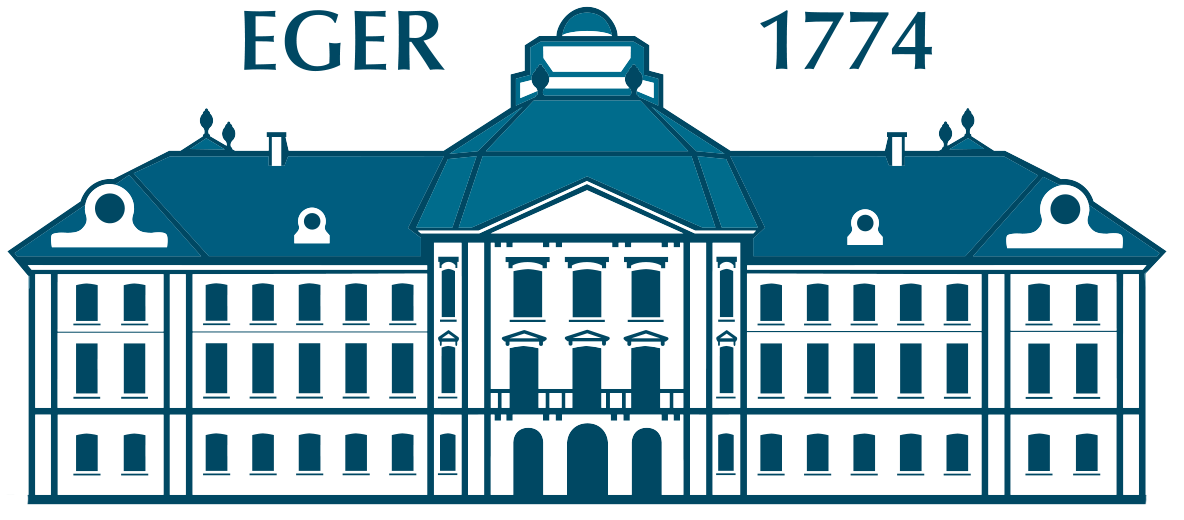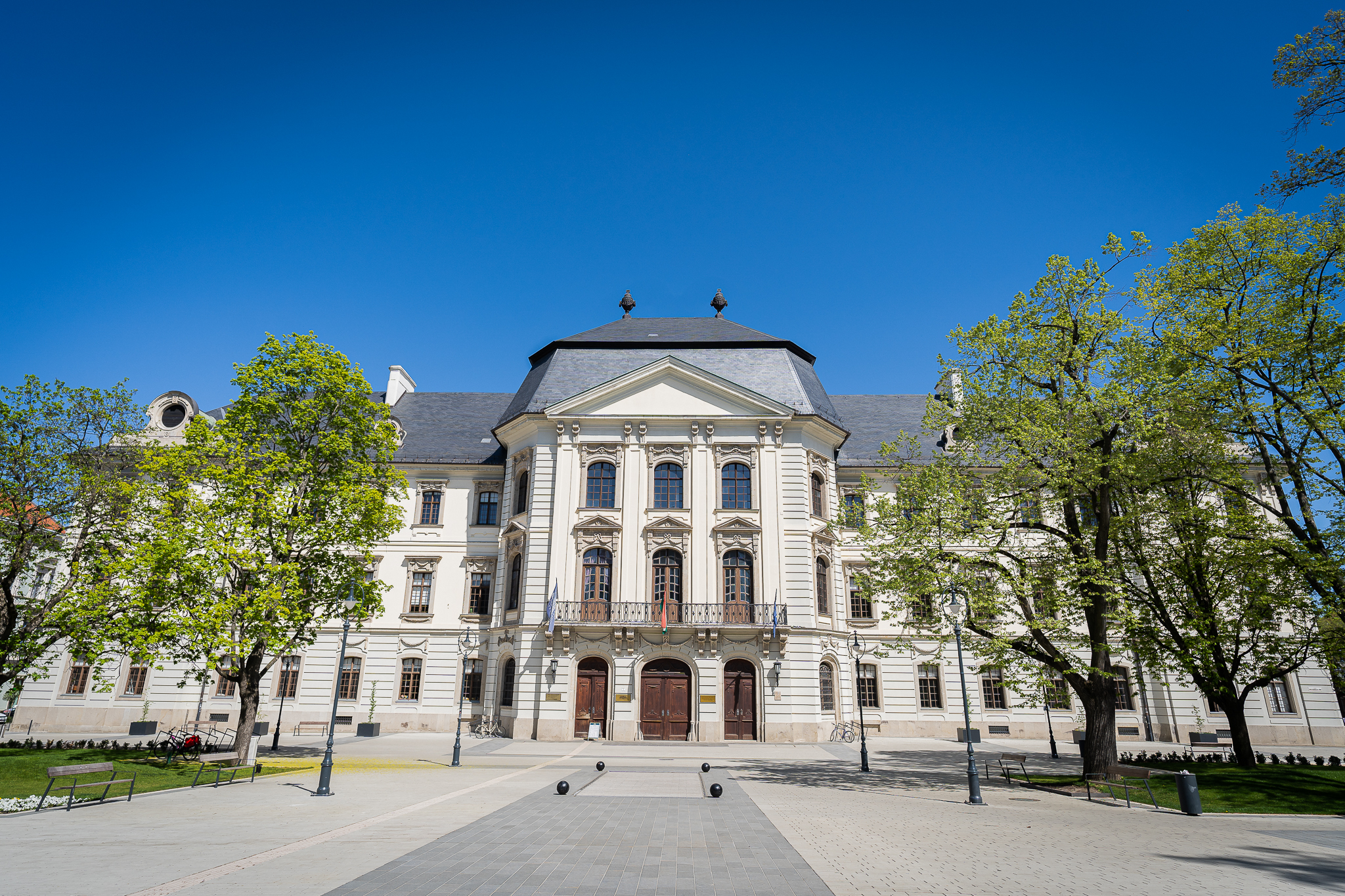Eszterházy Károly Catholic University
| Legal name: | Eszterházy Károly Catholic University |
| Country: | Hungary |
| Region: | Heves |
| City: | Eger |
| Website: | www.uni-eszterhazy.hu |

Eszterházy Károly Catholic University (EKCU) is – in relation to the country – a medium-sized state-recognized institution in the North-Eastern part of Hungary. The University has two campuses (Eger, and Jászberény), five faculties (Arts and Humanities, Economics and Social Sciences, Informatics, Education, Natural Sciences) and a Center for Research & Development. The University is a significant employer in the region, employing almost 900 people. More than 400 of them work as teachers and researchers. The institution has more than 6000 students at different levels of education. EKCU offers 9 higher education vocational training programmes, 31 bachelor’s programmes, 12 master’s programmes (2 double degrees), 21 5-year programmes, 19 teacher’s programmes, 2 PhD programmes (History, Education), numerous VET programmes, adult education and teachers’ training programmes. The courses cover 10 different areas, including: Agriculture, Humanities, Economics, Religious Studies, Computer Science, Arts, Teacher training, Sports Science, Social Sciences, Natural Sciences. In addition to lecturing, the faculties also carry out high-quality research activities. Academic staff are involved in numerous local, regional, national or international research groups. Our mission is also to introduce students to the world of science, so we provide students opportunities beyond the basic educational activities. EKCU also offers excellent sports and cultural facilities, a well-developed library and IT infrastructure and a great student community.
In parallel with the faculties, the Center of Research and Development has an important contribution to make. The unit is divided into 4 main departments. The first is the „Food and Wine Research Centre” which deals with analytical chemistry, molecular biology, microbiology, and food safety. The next department is the “Innoregion Knowledge Centre”. Its main fields are environmental research and economic geography (remote sensing, geospatial technologies, processing of "big data" information). In addition to these there is an „Experimental Vineyards and Viticulture”. It is also a grape gene bank, which includes more than 1000 different varieties. Also within the R&I Center there is the “Health Promotion and Sports Science Knowledge Centre.” The main goal of this department is to conduct research to preserve, restore and improve human health, developing methods for the prevention, treatment and rehabilitation of sports injuries. EKCU offers study programmes in English, like: Computer Science BSc, Viticulture and Oenology BSc (Double-degree with Bordeaux AgroSciences), Preschool Teacher BA (Jászberény Campus), Visual Representation BA, Music Culture BA, Computer Science MSc (Double-degree with Johannes Kepler University, Linz), Management and Leadership MSc, Geography MSc, International Studies MA, Doctoral School of Education, Preparatory English Language Courses, Summer Schools: Wine and Gastronomy, Hungarian as a Foreign Language, English Language for Special Purposes. EKCU currently has bilateral agreements and Erasmus+ agreements with around 200 partner institutions, therefore the students and staff have the possibility to study, teach or visit partner institutions in several countries. EKCU aims at both internal internationalisation (English-language programmes, joint trainings and dual programmes, research projects, services for international students, organised encouragement of students, academic and non-academic staff to participate in mobility programmes), and enhancing the international visibility of the institution (PR materials and basic university documentation in English, International Week, intercultural training etc.). The institution has extensive experience in coordinating projects with EU or other funding, both as a partner and as a coordinator. A dedicated Project Management Unit ensures that grant funds are used in an efficient way, following the rules of the project.

The Department of Special Education started its functioning in 2018 within the Faculty of Pedagogy of Eszterházy Károly University and became the Institute of Special Education on 1 October 2020. The Senate of the Eszterházy Károly Catholic University approved the establishment of the Department of Pedagogy and Inclusive Education of the Learning Disabled and the Department of Psychopedagogy and Speech Therapy at the Institute of Special Education with effect from 1 February 2022. In September 2018, we launched a bachelor's degree in special education with a specialization in speech and language therapy and psycho-pedagogy, and in September 2021, we added a specialization in pedagogy for learning-disabled people. With specializations in psycho-pedagogy, pedagogy of learning disabilities, and speech and language therapy, our graduates specialize in the care of a population that is particularly affected by integration. Currently, more than 600 students are enrolled. Students are welcomed by a team of qualified teachers. In addition to teachers in the fields of psychology, social sciences, education, methodology, and linguistics, our students are taught by highly qualified special needs teachers.
Training is also reinforced by professionals from the field. More than 50 institutions welcome our students for external placements and the number of partner institutions is growing every year. Our main tasks are to coordinate teacher training, provide high-quality teaching, and conduct research in the field of special needs education and disability studies. The bachelor's degree in special needs education is part of the teacher training program, and students acquire the theoretical and practical foundations for future high-level professional work in 8 semesters of 240 credits. In the chosen specialization, they provide professional assistance to people with various disabilities, impairments, and handicaps, and carry out complex remedial pedagogical development, education, training, habilitation, and rehabilitation.
